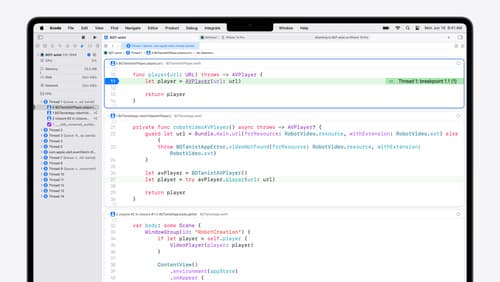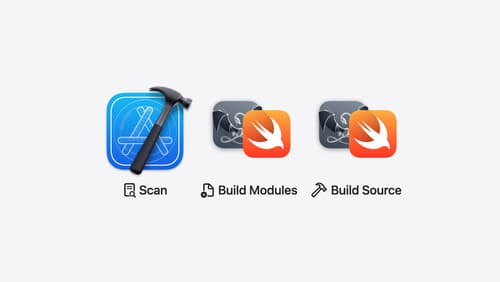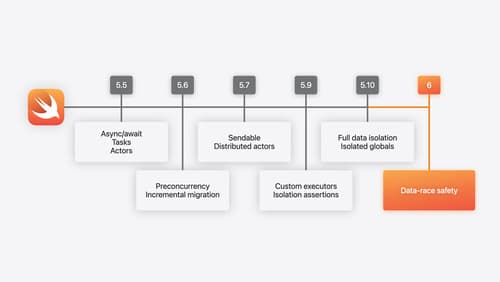what happens during build process
Asked on 2024-09-24
1 search
During the build process in Xcode 16, several improvements have been made to enhance efficiency and clarity. One of the key changes is the introduction of explicitly built modules. This approach involves splitting the compilation of each source file into three distinct phases: scanning, building modules, and finally building the original code. This separation allows for better parallelism and more detailed build logs, making it easier to identify where time is being spent and to optimize builds.
Explicitly built modules also improve reliability by providing precise dependencies and deterministic build graphs. This means that the compiler runs the same way every time, and any build failures can be reproduced by running the failing task again in isolation. Additionally, the build system can now make more informed scheduling choices, avoiding tasks that are not ready to run and making efficient use of available execution lanes.
For more detailed insights into the build process and explicitly built modules, you can refer to the session Demystify explicitly built modules (05:55).

What’s new in Xcode 16
Discover the latest productivity and performance improvements in Xcode 16. Learn about enhancements to code completion, diagnostics, and Xcode Previews. Find out more about updates in builds and explore improvements in debugging and Instruments.

Demystify explicitly built modules
Explore how builds are changing in Xcode 16 with explicitly built modules. Discover how modules are used to build your code, how explicitly built modules improve transparency in compilation tasks, and how you can optimize your build by sharing modules across targets.

What’s new in Swift
Join us for an update on Swift. We’ll briefly go through a history of Swift over the past decade, and show you how the community has grown through workgroups, expanded the package ecosystem, and increased platform support. We’ll introduce you to a new language mode that achieves data-race safety by default, and a language subset that lets you run Swift on highly constrained systems. We’ll also explore some language updates including noncopyable types, typed throws, and improved C++ interoperability.
